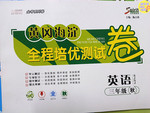题目内容
【题目】—Look! Someone the laptop.
—Well, it wasn't me. I didn't do it.
A. has repaired B. is repairing
C. had repaired D. was repairing
【答案】A
【解析】
试题分析:考查时态。A现在完成时,已经修理;B现在进行时,正在修理;C过去完成时,过去已经修理;D一般过去时,过去正在修理,根据句意下文说不是我,可知电脑是已经修理了,另此处也不存在与过去相比较,应用现在完成时,句意:看,有人把电脑修了。好吧,不是我,我没修。故选A

练习册系列答案
 名牌学校分层周周测系列答案
名牌学校分层周周测系列答案 黄冈海淀全程培优测试卷系列答案
黄冈海淀全程培优测试卷系列答案
相关题目